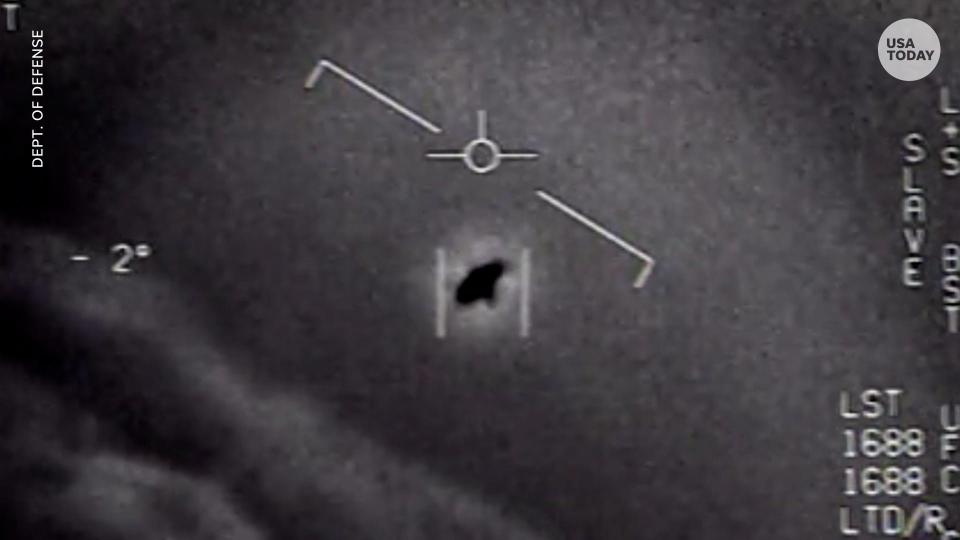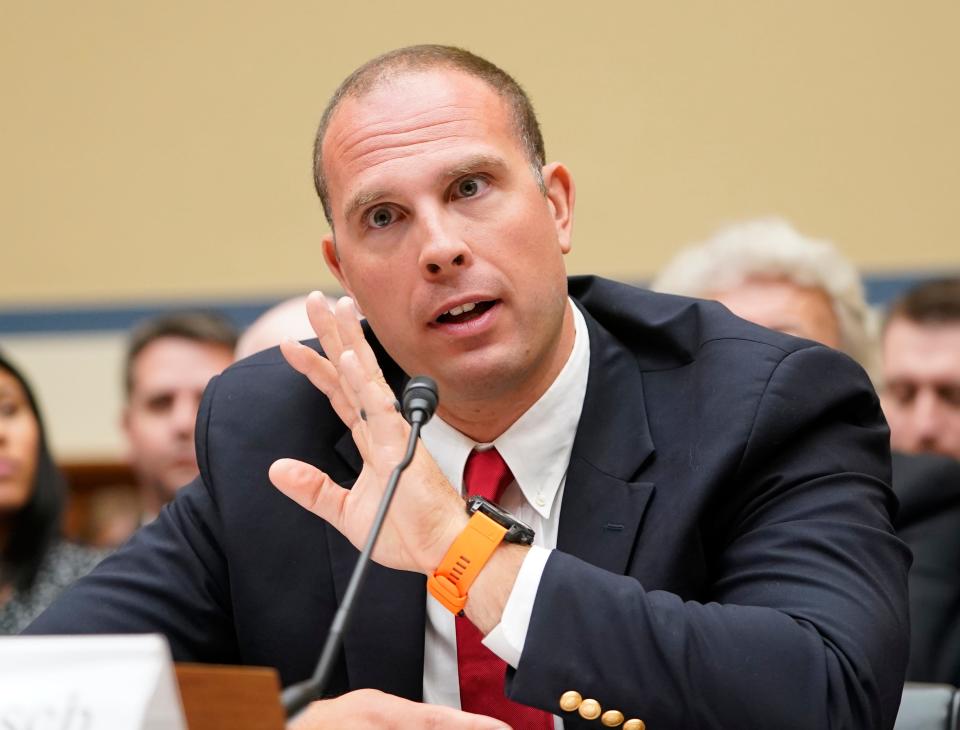'No evidence of aliens:' U.S.'s former top UFO hunter opens up in podcast interview
For well over a year, Sean Kirkpatrick led the Pentagon's fledgling office to investigate reports of strange objects outmaneuvering military crafts and violating U.S. airspace.
Kirkpatrick, a laser and materials physicist with a PhD from the University of Georgia, has said he sought to approach the study of these UFO reports with a degree of scientific rigor. But no matter his intentions, the All-domain Anomaly Resolution Office (AARO) was destined to become entangled with the sensationalized concepts of flying saucers and little green men.
A now-infamous July hearing teaming with testimony about shadowy military programs to retrieve and study downed alien spaceships and their pilots only served to throw Kirkpatrick and his office into a spotlight he never sought. Public suspicion grew that the U.S. military and other high levels of government had for years been concealing information about extraterrestrial activity – even as AARO and NASA made shows of transparency.
Kirkpatrick, who has since decided to leave his post as AARO's director, recounted his experience leading the office in an appearance on the Audible podcast, "In the Room with Peter Bergen." Here are the key takeaways from Kirkpatrick's interview with Bergen, a journalist and national security analyst for CNN.
Peregrine lunar lander: Navajo Nation 'relieved' human remains didn't make it to the moon
AARO's congressional report on UFO sightings dating to 1940s

Since Congress established AARO in July 2022, it has taken a keen interest in learning more about what high levels of government known about UFOs, which the government now refers to as unidentified anomalous phenomena (UAP.)
Recently, Congress passed one bill requiring the release of some UFO records, and introduced another that would create a reporting mechanism for commercial pilots.
Meanwhile, Kirkpatrick and his office have set about interviewing witnesses in the military while reviewing video, radar and other data backing up first-hand accounts of UAP for a report recently handed over to Congress.
In his estimate, about 2-5% of all the reports AARO investigated are truly anomalous, meaning they defy a simple natural explanation without further investigation, Kirkpatrick told Bergen.
“Most of the time when we can't give an explanation, it is because there is a lack of data,” Kirkpatrick said in the interview.
What Kirkpatrick learned about Roswell conspiracy theories
The Roswell story began in 1947 when the U.S. military first put out a report saying it captured a flying saucer near the Roswell Army Airfield in New Mexico.
Though it later retracted the claim and put out the new official story that it was a weather balloon, the damage was done: To this day, conspiratorial thinkers believe that alien bodies were recovered amid the wreckage.
But Kirkpatrick chalks all the UFO hoopla up to a top secret government program not to reverse-engineer alien ships, but to manufacture high-altitude metallic spy balloons. In his estimation, recovery operations to retrieve those downed balloons, as well as a very real, very fatal military plane crash at the time, combined to perpetuate the UFO myth.
"Everybody's still raw from the war, and there's lots of technological issues that people are trying to wrap their minds around," Kirkpatrick said. "And that affected a lot of what people saw and how they reported. I think the same thing is true today.”
Kirkpatrick denies that the U.S. government has found extraterrestrials

At one point in the interview, Bergen cut straight to the chase, inviting Kirkpatrick "if you found evidence of extraterrestrials, to exclusively tell us on this podcast."
But no dice.
"The best thing that could have happened in this job is I found the aliens and I could have rolled them out, but there's none," Kirkpatrick replied. "There is no evidence of aliens and there's no evidence of the government conspiracy."
Rather, Kirkpatrick contended that the objects many witnesses mistake for extraterrestrial UFOs are actually new classified technology being tested in our skies, or even aircraft from rival nations being used to spy on the U.S. Remember the Chinese spy balloon episode?
Some of them could even be civilian drones, all of which Kirpatrick concedes are national security concerns.
“What is more likely? That an adversary has come up with a new technology,” Kirkpatrick asked, "or we have extraterrestrials?"
Why he thinks 'true believers' within the government spread the biggest conspiracy theories
The denial is at odds with testimony provided in July by former Pentagon intelligence official David Grusch, who testified about an alleged shadowy "multi-decade" Pentagon program to retrieve and study not only downed spacecraft, but extraterrestrial pilots.
Grusch accused the government under oath of being aware of extraterrestrial activity since the 1930s and hiding the program from Congress while misappropriating funds to operate it.
Kirkpatrick took a swipe at Grusch in the interview, labeling him as being among a small group individuals within the military apparatus who have become "true believers" determined to involved the government in investigating aliens.

“This core group of people have influenced him, have told him this information,” Kirkpatrick said. “He may have misinterpreted things that people have said, or he may have just fallen to the influence of what these folks have been telling him.”
Dismissing Grusch and others' claims as "window dressing," Kirkpatrick re-iterated his stance that such rumors have circulated despite the lack of any evidence supporting the claims. However, even Grusch acknowledged during his testimony that laws regarding classified information constrained him from presenting hard evidence of a crash retrieval program.
"The office's mission is not to prove the existence of extraterrestrials," Kirkpatrick reminded Bergen. "The office's mission is to minimize technical and intelligence surprise."
Eric Lagatta covers breaking and trending news for USA TODAY. Reach him at [email protected]
This article originally appeared on USA TODAY: Do aliens exist? Pentagon's outgoing UFO hunter opens up in podcast
